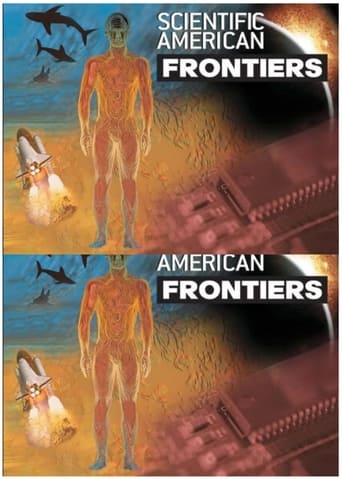Scientific American Frontiers Season 11

Scientific American Frontiers was an American television program primarily focused on informing the public about new technologies and discoveries in science and medicine. It was a companion program to the Scientific American magazine. The show was produced for PBS in the U.S. by The Chedd-Angier Production Company, Watertown, Massachusetts, and typically aired once every two to four weeks. To this day, the shows can be viewed on-line at their website, and continue to air regularly on the national digital channel World. The show first aired in 1990 with MIT professor Woodie Flowers who served as the original host from 1990 to the spring of 1993. Actor Alan Alda became the permanent host starting in the fall season of 1993 and continued until the show ended in 2005. Alda's tenure has been notable for his humble and often humorous approach: in one memorable segment, he became car sick while driving an experimental, virtual reality vehicle. In 2005, Alda published his first round of memoirs, Never Have Your Dog Stuffed: and Other Things I've Learned, published by Random House; in the book, he recalls his intestines becoming strangulated while on location in Chile for the show, an incident that nearly cost him his life since he was in a remote region and it was difficult to get to a doctor. Finally he found one, who turned out to be a M*A*S*H fan. Further, the treatment was familiar to Alda; the historical development of techniques for vascular anastomosis during the Korean war had featured in the show's scripts.
Watch NowWith 30 Day Free Trial!
Scientific American Frontiers
1990
Scientific American Frontiers was an American television program primarily focused on informing the public about new technologies and discoveries in science and medicine. It was a companion program to the Scientific American magazine. The show was produced for PBS in the U.S. by The Chedd-Angier Production Company, Watertown, Massachusetts, and typically aired once every two to four weeks. To this day, the shows can be viewed on-line at their website, and continue to air regularly on the national digital channel World. The show first aired in 1990 with MIT professor Woodie Flowers who served as the original host from 1990 to the spring of 1993. Actor Alan Alda became the permanent host starting in the fall season of 1993 and continued until the show ended in 2005. Alda's tenure has been notable for his humble and often humorous approach: in one memorable segment, he became car sick while driving an experimental, virtual reality vehicle. In 2005, Alda published his first round of memoirs, Never Have Your Dog Stuffed: and Other Things I've Learned, published by Random House; in the book, he recalls his intestines becoming strangulated while on location in Chile for the show, an incident that nearly cost him his life since he was in a remote region and it was difficult to get to a doctor. Finally he found one, who turned out to be a M*A*S*H fan. Further, the treatment was familiar to Alda; the historical development of techniques for vascular anastomosis during the Korean war had featured in the show's scripts.
Watch Trailer
Scientific American Frontiers Season 11 Full Episode Guide
Alan Alda explores the real science behind fad foods, eating habits and lifestyles.
Join aviation engineer Paul MacCready and Alan Alda as they test fly a variety of unconventional planes.
Get to know chimpanzees, how they socialize with each other, new dangers they face, and just how similar our species truly are.
Researchers are uniting biology and technology to give hope to the paralyzed.
Alan Alda learns that sometimes saving endangered species requires restoring whole ecosystems.
Why can't you tickle yourself? Is laughter uniquely human? These little questions might have some big answers.
Learn about advances in the repair and replacement of the hard-working heart.
How did life arise on Earth? What separates humans from apes? Will machines one day invent themselves? Learn more here.
Discover the science behind people who push themselves to the limits of human performance.
Some of the nations top neuroscientists uncover new evidence of our brain's ability to change.
Free Trial Channels
Seasons


























